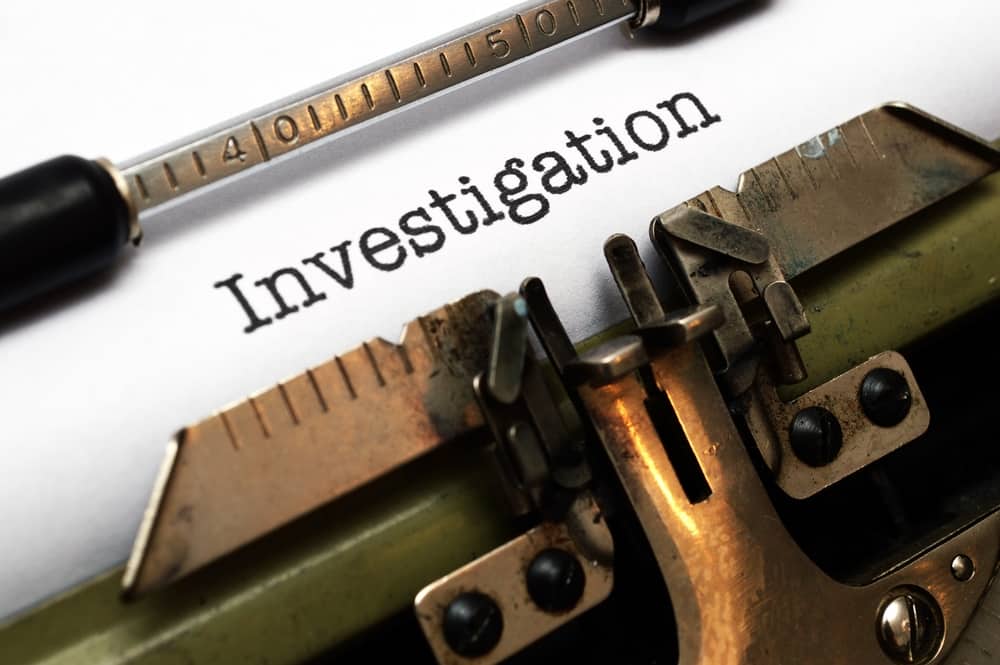Investigator Functions:
Using investigators during workers compensation claim handling is often necessary to reduce case cost and exposure. Investigators may be needed to investigate for fraud, malingering, claimant activity, subrogation, physical inspections of the loss scene, and criminal evidence for prosecution.
Investigators have strong experience and investigative ability that the average claim adjuster is not exposed to. They may have had police training, special investigative schooling, government training. Many investigator’s are ex-employees of governmental and law enforcement organizations.
An investigator can perform background investigations of prospective employees. Such investigations may be necessary for security positions, pre-existing medical conditions, prior claims, past criminal data, or any other facts that can no longer be gained from usual personnel references. The cost for such investigation may well be worthwhile as it can prevent the hiring of an undesirable candidate.
Investigators are generally required to be licensed by the state, the local municipality, and be cleared by local law enforcement as well. Most jurisdictions have laws or regulations outlining what a investigator can and cannot do. These guidelines cover many things. A few examples are: entrapment, harassment, search and seizure, wiretapping, video and camera filming’s, constitutional violations, safety, and privacy restrictions.
Screening for an Investigator:
It is necessary to screen and explore the qualifications, expertise, and performance of the potential investigator you plan to hire. Require the candidates to furnish the following:
- Resumes for each investigator in the investigator organization.
- A complete history of the company, its owners, financials, licenses, and certificates of operation and local police department standing. Retain copies in a permanent file.
- Reliable references from other claim units.
- An estimate or actual accounting of cases where their work was successful in litigation.
- How well and who will testify in litigation proceedings. What is the testimony and witness impression record on judge or jury?
- Any records where the investigator organization was sued, faced criminal, or negligent action.
Contracting with an Investigator:
When the unit claim manager is satisfied with the investigator background investigation and is proceeding to engage its services prepare a written contract. The contract should:
- Stipulate authority levels, and the claim file reviewing procedure. Identify the claim persons who will have power to authorized investigator service.
- Determine fees, allowable expenses and billing procedure.
- State reporting times and procedures (do not allow repetitive information to be entered).
- Declare procedures on how to identify and confirm that they have the proper persons under investigation.
- State all surveillance should be scheduled when the investigated person will be moving.
- Require surveillance be conducted on non-business hours, after storms, weekends and holidays when necessary.
- Determine when and how to supply cost estimates, revisions and necessity for changes.
- State how to document and preserve evidences for litigation needs.
- Site procedures and authorizations to work with employer, defense counsel and other involved entities.
- Specify any special reporting procedures required by the employer.
- Cover procedure for notification for conflict of interest or any situation that could impede the investigation.
- The investigator is not to undertake any investigative step that could be done by the claim adjuster without clearance and authority.
- Specify all instances desired for the investigator to contact the adjuster from the field during investigation.
- Detail how, and when to request authority to handle an investigation needing special investigation methods.
Controlling the Investigator:
Once the case is assigned and under investigation the claim adjuster needs to be alert to all activity and be pro-active in:
- Exploring failures to obtain desired results.
- Watching for excess investigator activity.
- Limiting waiting time for results.
- Exploring any other point of procedure or handling that will or could impact the claim or investigation.
Summary:
Using investigators in the process of workers compensation claim handling can be a vital tool to curtail, mitigate, limit claim exposure, and reduce file cost. It should be used when facts indicate potential fraud, malingering, subrogation, field investigation and claimant surveillance when claimant activity becomes suspect.
- Chose a claim unit investigator wisely. Investigate for experience, education, qualification, and licensing. Check all references and past performance with their clients.
- Prepare a contract that clearly declares all methods of operation, fees, and associated expenses. Clarify reporting requirements, authority, and contact persons.
- Maintain close follow through contact for desired results. Do not just assign the case to the investigator and wait. This can allow for excess activity and billing.
Author Michael Stack, Principal, COMPClub, Amaxx LLC. He is an expert in workers compensation cost containment systems and helps employers reduce their work comp costs by 20% to 50%. He works as a consultant to large and mid-market clients, is co-author of Your Ultimate Guide To Mastering Workers Comp Costs, a comprehensive step-by-step manual of cost containment strategies based on hands-on field experience, and founder of COMPClub, an exclusive member training program on workers compensation cost containment best practices. Through these platforms he is in the trenches on a monthly basis working together with clients to implement and define best practices, which allows him to continuously be at the forefront of innovation and thought leadership in workers’ compensation cost containment. Contact: mstack@reduceyourworkerscomp.com.
©2015 Amaxx LLC. All rights reserved under International Copyright Law.
Do not use this information without independent verification. All state laws vary. You should consult with your insurance broker, attorney, or qualified professional.

























